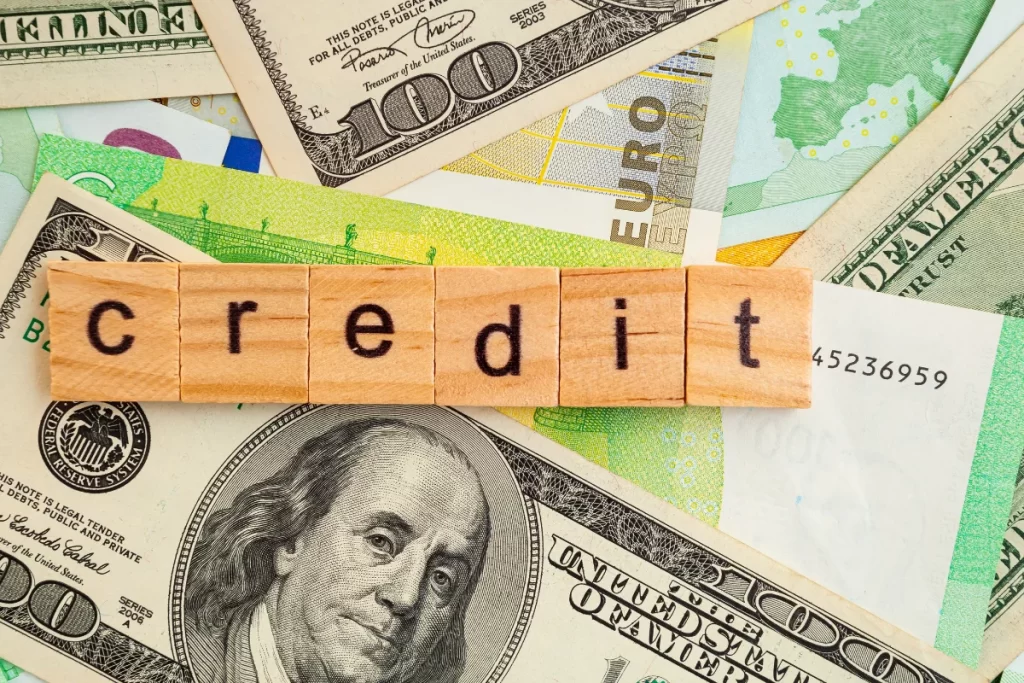- Debts and Credit
How Does the Credit Score Work and How to Improve It

Your credit score is one of the most important factors in your financial life. It affects your ability to get loans, credit cards, mortgages, and even rent an apartment. A good credit score can help you qualify for better interest rates, while a low score can make borrowing more expensive or even impossible.
In this guide, we’ll explain how credit scores work, what factors influence them, and how you can improve your score for better financial opportunities.
1. What Is a Credit Score?
A credit score is a numerical representation of your financial reliability, based on your history of borrowing and repaying money.
✅ Key Facts About Credit Scores:
✔ It ranges from 300 to 850 (in the U.S.) or 0 to 1000 (in some other countries).
✔ A higher score means you are more financially responsible.
✔ Banks and lenders use it to decide whether to approve your loan applications.
🚀 Example: A person with a 750+ credit score can qualify for a lower interest rate on a mortgage than someone with a 600 score.
💡 Tip: Your credit score determines how much you’ll pay in interest—the higher your score, the cheaper borrowing becomes.
2. How Is the Credit Score Calculated?
Credit scores are determined by different factors that reflect your borrowing habits.
✅ Credit Score Breakdown (FICO Model):
| Factor | Percentage | Impact on Score |
| Payment History | 35% | Paying bills on time is the most important factor. |
| Credit Utilization | 30% | How much of your available credit you’re using. |
| Length of Credit History | 15% | Older accounts improve your score. |
| New Credit Inquiries | 10% | Too many new credit applications can lower your score. |
| Credit Mix | 10% | Having different types of credit (loans, credit cards) helps. |
🚀 Example: If you have a $5,000 credit limit and your balance is $4,500, your utilization rate is 90%, which negatively affects your score. Keeping it below 30% is ideal.
💡 Tip: The two most important factors are paying bills on time and keeping balances low.
3. What Is a Good Credit Score?
Different credit bureaus use different scoring models, but in general:
✅ Credit Score Ranges (FICO & VantageScore):
| Score Range | Rating |
| 800 – 850 | Excellent |
| 740 – 799 | Very Good |
| 670 – 739 | Good |
| 580 – 669 | Fair |
| 300 – 579 | Poor |
🚀 Example: If your score is below 580, you might get denied for loans or have to pay very high interest rates.
💡 Tip: A score above 700 qualifies you for most credit cards and loans with better terms.
4. How to Check Your Credit Score for Free
It’s important to regularly check your credit score to ensure accuracy and detect any issues.
✅ Where to Check Your Credit Score:
✔ Credit bureaus – Equifax, Experian, and TransUnion (U.S.), Serasa (Brazil), etc.
✔ Banking apps – Many banks offer free credit score tracking.
✔ Credit monitoring services – Apps like Credit Karma or ClearScore.
🚀 Example: In the U.S., you can check your credit report for free once a year at AnnualCreditReport.com.
💡 Tip: Checking your own credit score does not lower it, but applying for new credit can.
5. How to Improve Your Credit Score
If your credit score is low, don’t worry—there are steps to improve it over time.
✅ Best Ways to Increase Your Credit Score:
✔ Pay bills on time – Late payments hurt your score the most.
✔ Reduce credit utilization – Keep balances below 30% of your credit limit.
✔ Don’t apply for too many new credit accounts in a short period.
✔ Keep old accounts open – Length of credit history matters.
✔ Diversify your credit mix – Having different types of credit (credit card + loan) helps.
🚀 Example: If you pay off a large credit card balance, your score can increase by 20–50 points in a few months.
💡 Tip: Set up automatic payments to ensure you never miss a bill.
6. Common Credit Score Mistakes to Avoid
Many people unknowingly hurt their credit score by making bad financial decisions.
❌ Biggest Credit Score Mistakes:
✔ Paying bills late or missing payments.
✔ Using too much of your available credit.
✔ Closing old credit accounts (reduces credit history length).
✔ Applying for too many new credit cards at once.
✔ Ignoring errors on your credit report.
🚀 Example: If you miss a credit card payment by more than 30 days, your score could drop by 100 points or more.
💡 Tip: Set calendar reminders for due dates or enable auto-pay.
7. How Long Does It Take to Improve a Credit Score?
Improving a credit score takes time, but small actions can lead to steady growth.
✅ How Long Negative Items Stay on Your Credit Report:
✔ Late Payments – Up to 7 years.
✔ Bankruptcies – 7–10 years.
✔ Hard Inquiries – 2 years.
🚀 Example: If you miss a payment, it will stay on your credit report, but its impact will decrease over time if you make consistent on-time payments.
💡 Tip: The sooner you start improving habits, the faster your score will recover.
8. Should You Take Out a Loan to Build Credit?
Loans can help build credit if used correctly, but they also come with risks.
✅ When Loans Can Help Your Credit Score:
✔ If you make on-time payments every month.
✔ If you keep balances low and don’t overspend.
✔ If you use a secured credit card or small personal loan responsibly.
🚀 Example: A secured credit card requires a deposit and helps you build credit without high risk.
💡 Tip: Only borrow what you can afford to repay in full every month.
9. How Credit Scores Affect Your Financial Life
A good credit score gives you more financial opportunities, while a low score can be limiting.
✅ Impact of a High vs. Low Credit Score:
| Financial Decision | High Score (750+) | Low Score (Below 600) |
| Credit Card Approval | Easy approval, better rewards | Higher rejection rates |
| Loan Interest Rates | Low rates (cheaper loans) | High rates (expensive loans) |
| Renting an Apartment | Approved easily | May need extra deposits |
| Buying a Car | Lower financing costs | Higher monthly payments |
🚀 Example: A person with a 750 credit score may qualify for a 3% mortgage rate, while someone with 600 might get a 7% rate—which means paying thousands more in interest over time.
💡 Tip: A higher credit score saves you money on loans, insurance, and even rental applications.
Final Thoughts
Your credit score affects your financial opportunities, so it’s important to understand and manage it wisely.
✔ Check your credit score regularly and fix any mistakes.
✔ Pay bills on time and keep balances below 30% of your limit.
✔ Avoid applying for too many new credit accounts at once.
✔ Keep old credit accounts open to maintain a long credit history.
🚀 A good credit score opens doors to better financial deals—start improving yours today!






